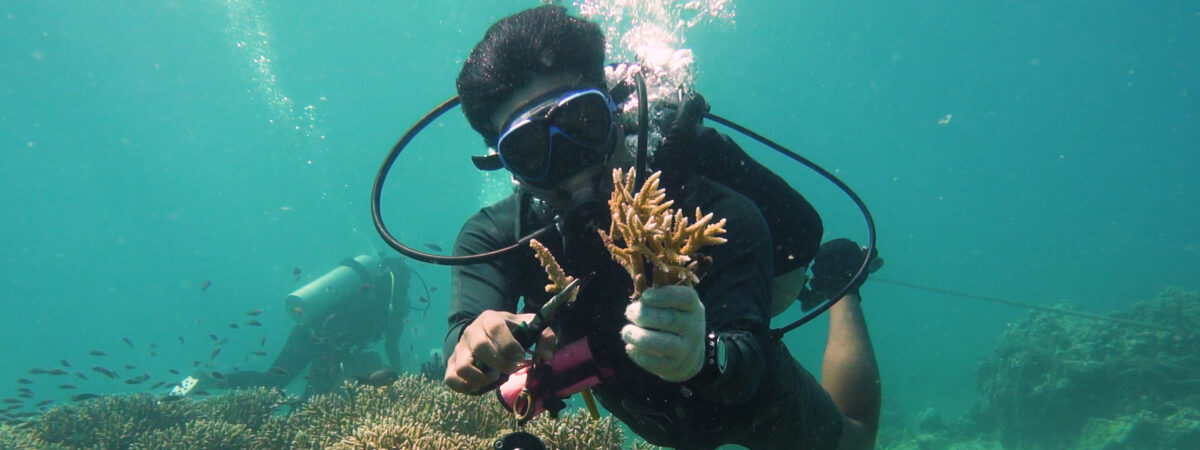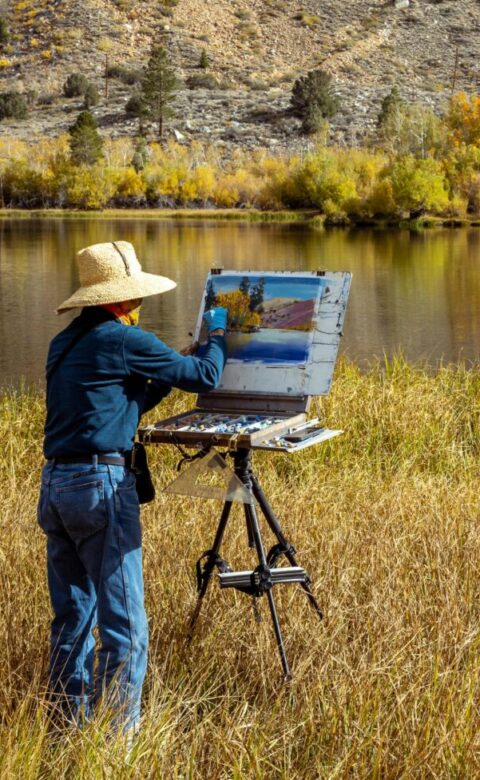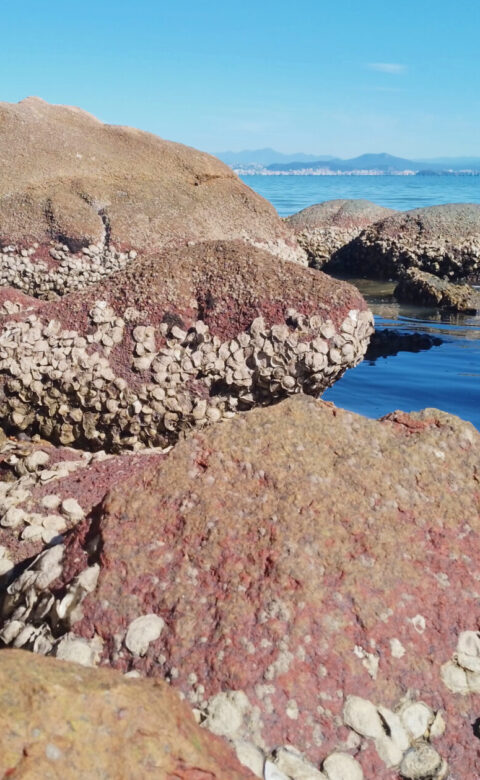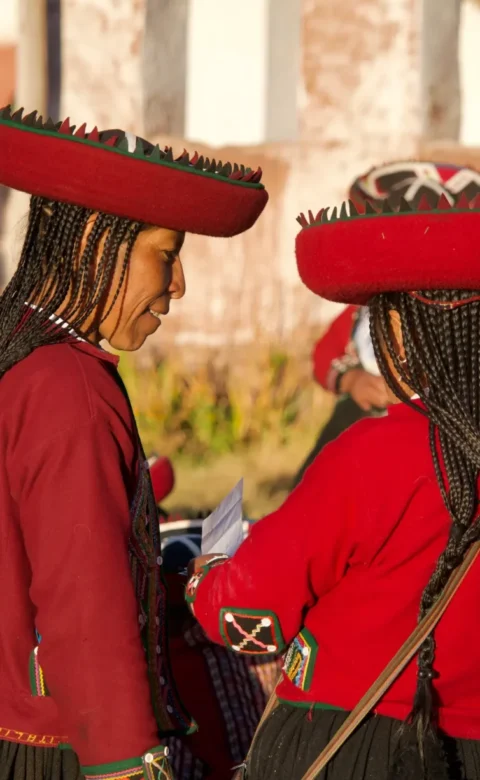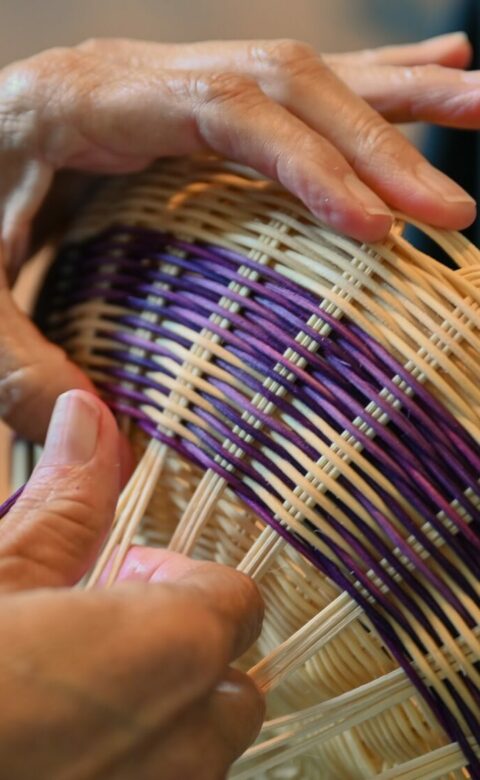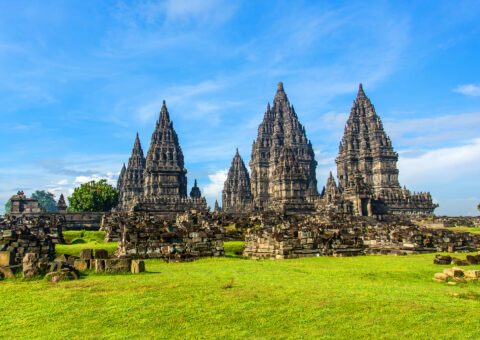On a small Indonesian island, local volunteers are spearheading the fight to save their coral reefs — and help travellers participate in the work. Andre Saputra leads the effort.
“BCD? Check. Goggles? Check. Airflow? Check. Everyone ready?”
On the surface, this looks like one of countless scuba dives happening every morning around the Gili islands in Lombok, Indonesia. It’s one of the most popular places for tourists to learn to dive given the low cost and overall beauty of the surrounding reef.
But this isn’t just a fun dive. This group of divers have a mission.
For these divers, there is an existential dread with every dive: What if we lose all of this in the next 30 years?
An organisation born out of lockdown
Andrean Saputra, or Andre, is a marine scientist and founder of Indonesia Biru Foundation (IBF), a local volunteer-driven non-governmental organisation. During 2020, Andre found himself in the same position as many other people around the world — tired and bored with the monotony of lockdown.
He decided he’d do something impactful with his time, taking up the fight for what he loves. IBF was founded with the aim of carrying out coral research, restoration, and coastal community development in several reefs around Lombok and the Gilis.
While quiet, the pandemic gave Saputra and his team the chance to restore reefs. Several sites were surveyed for suitability before teams constructed and planted “spiders” — large, metal structures that sink into the seabed, providing a canvas on which new coral can grow. The IBF team then harvested small pieces of coral from existing reefs, tying them to the spider structures. The rest was down to time and Mother Nature.
Above water in Kecinan Bay, Saputra and the team secured funding for the construction of a coral laboratory — a closed environment where the ocean’s conditions are replicated in tanks. It’s an important part of the jigsaw puzzle, where Saputra and the team study the resistance of different coral species in regard to rising ocean temperatures and acidity.
The coral lab is also an important place for locals, some coming into contact with the ocean for the first time. Throughout Lombok, many locals have a fear of the sea, so they have little to no understanding of why the ocean and corals are so important to their communities. As the harsh realities of lockdown highlighted so sharply, the local Lombok economy receives a huge injection of cash from tourists visiting reefs through diving tours, recreational fishing trips, hotels, restaurants, and other businesses based near these coastal ecosystems. If these were to disappear, thousands of livelihoods would be at risk, not to mention the additional impacts to agriculture and food chains.
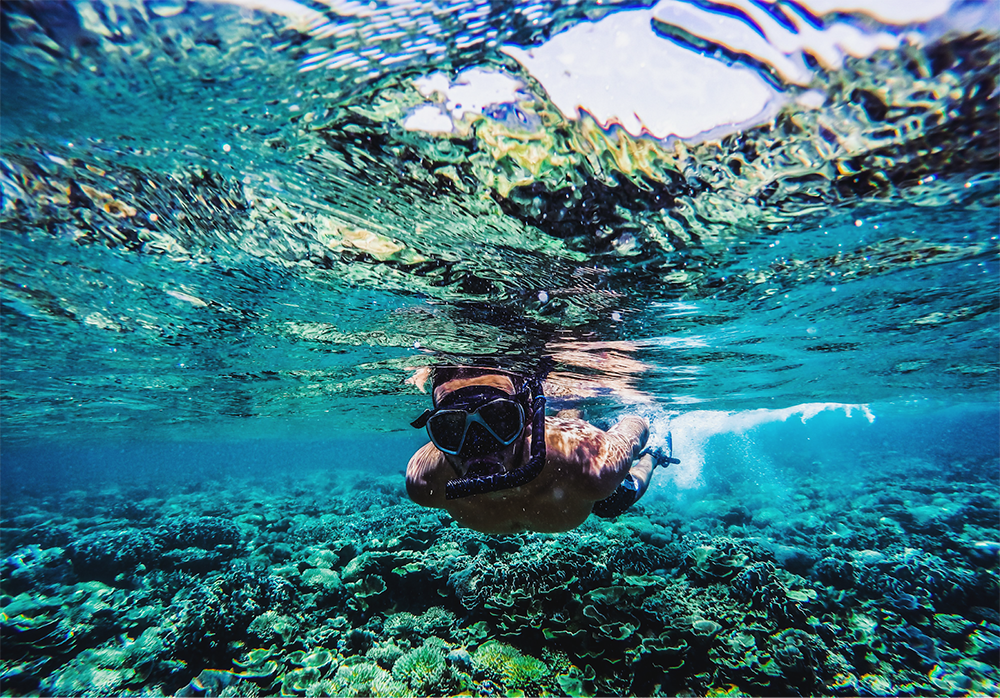
Impact of tourism on the coral reefs
While tourism offers many advantages for local economies, it’s difficult to say the same for the surrounding reefs. Arriving in Indonesia by boat or plane, carbon emissions from international tourists are naturally a problem. The most pressing impact on the reefs are oil spills and noise pollution from boats that disturb the biota in the coral reefs.
“The tourist activities themselves can be a problem,” Saputra explained. “When snorkelling and scuba diving, there are several things which aren’t done sustainably, like anchoring, stepping on corals, and touching the marine life.”
Many first-time divers come to Lombok to do their PADI certifications, resulting in bumping and knocking up against the corals. Imagine if one dive group of six people causes two incidents of coral damage. Then, consider how many dives are happening around Lombok and how many people are in the water each day. It’s easy to see how, over a number of years, the health of the coral deteriorates.
During the pandemic the absence of crowds allowed nature the chance to breathe and reset. The coral reefs around Lombok saw a huge improvement. “There was no traffic, which meant that we could see in a few locations how biodiversity and fish biomass increased,” Saputra said.
What can tourists do to help?
IBF is now focusing on turning tourism into a beneficial tool for the reefs. The pandemic raised awareness about the importance of travelling responsibly and giving back whenever possible. Now, ocean enthusiasts visiting Lombok can enjoy diving while also getting involved in conservation. “If we really care about these marine habitats, then we have a moral duty and responsibility to give back.” said Josh Edwards, a British tourist involved with IBF. “If we carry on as we are, then these habitats will cease to exist in twenty years, destroying the reason so many visit in the first place.”
Tourists can plant corals and get involved in the maintenance and monitoring programmes. Even those who don’t want to dive can enjoy activities like beach cleanups, mangrove planting, or visiting the coral lab to learn about coral biology without ever getting wet.
“Being a responsible tourist is to actually make a place better than when you arrived,” Saputra said. “Lombok is a growing tourism destination in Indonesia, so we want to keep it as beautiful as possible, and one of the tools is to join conservation work.
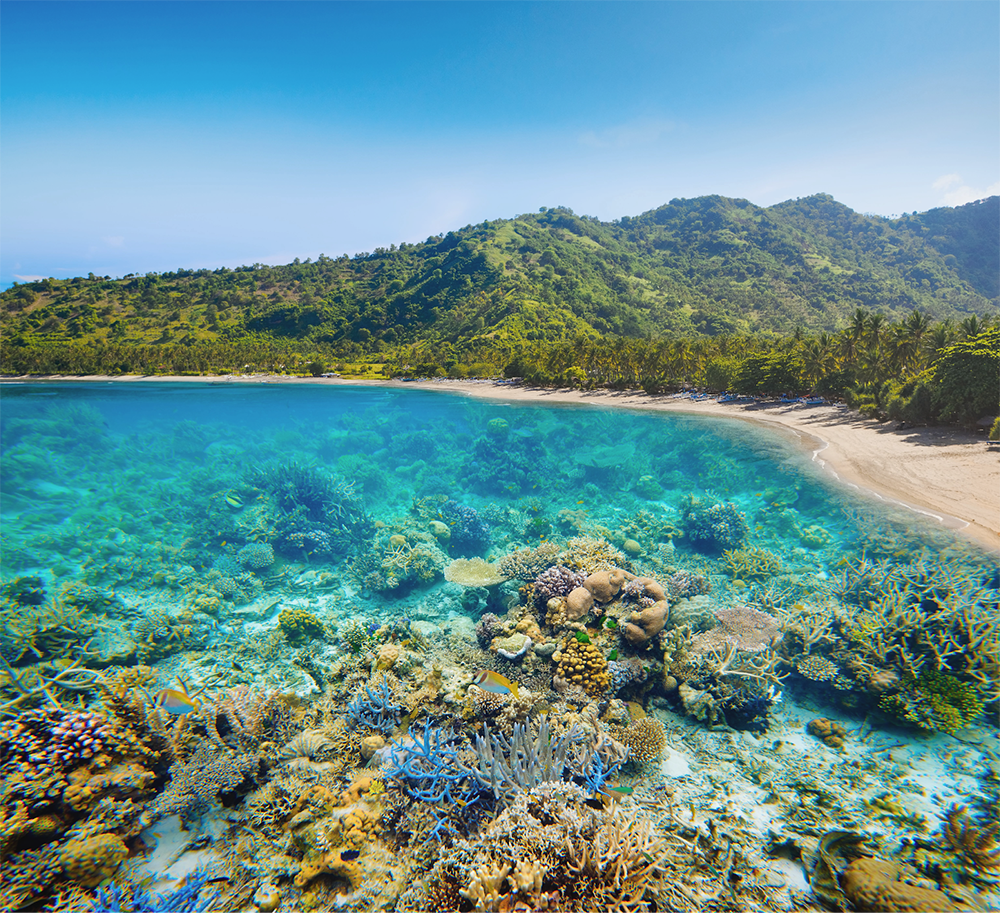
The future of tourism in Lombok
Saputra is hoping for not only responsible travellers, but conscious travellers — those who care about the locals whose home and environment they visit. “If you try to learn about the history, the culture, and how people there live their lives, that will change your perspective on a place,” he said. “Hopefully, future tourism in Lombok will adopt this concept of quality tourism instead of mass tourism.”
A featured organisation on Restor for COP27, IBF is growing rapidly, and there’s a positive feeling among the team. “I hope that we can still enjoy the beauty of coral reefs, mangroves, and seagrass in the future, and not only in the next ten years,” Saputra said, smiling.
With tourism quickly returning to Lombok and the pandemic challenging everyone to think about the environmental impact of travel, joining local initiatives such as IBF creates a more meaningful, sustainable travel experience.

